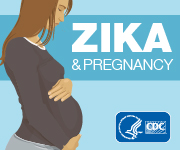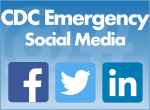Community Engagement

All crises start and end at the community level. Communicating effectively with local partners and stakeholders is critical to managing an emergency. Engaging community members in a response helps responders tailor communication efforts to local needs and promote realistic actions to improve public health outcomes.
Emergency communicators can improve community relations by requesting increasing levels of community involvement. The following steps may be taken progressively:
- Outreach: Responders establish communication channels to provide the affected community with information.
- Consult: Responders seek community input to develop connections and identify communication needs.
- Involve: Community members participate with responders on response efforts.
- Collaborate: Community members and responders partner on response activities—including communication development and dissemination.
When emergency responders share ownership in a crisis, they are able to empower community members to work towards solutions.
For example, CDC knows that controlling Aedes aegypti mosquito populations can help prevent the spread of Zika, a virus that can cause birth defects in the fetuses of pregnant women who become infected. If only one local household is diligent about following guidelines to reduce mosquito reproduction, the local mosquito population will not likely change much. If, however, an entire community receives, understands, and follows recommendations to reduce mosquito populations, they may significantly reduce the risks to the local public’s health.
Emergency communicators must work closely with communities affected by crises to understand public health needs, how best to share messages, and barriers to taking action. By establishing these partnerships, responders are more likely to communicate effectively.
For more resources and information on CERC, please see Crisis and Emergency Risk Communication, 2014 Edition or Crisis and Emergency Risk Communication Pandemic Influenza, 2007.
Have you used CERC in your work? To share your CERC stories, e-mail cercrequest@cdc.gov. Your stories may appear in future CERC Corners.
- Page last reviewed: March 24, 2017
- Page last updated: March 24, 2017
- Content source:
- Maintained By:





 ShareCompartir
ShareCompartir